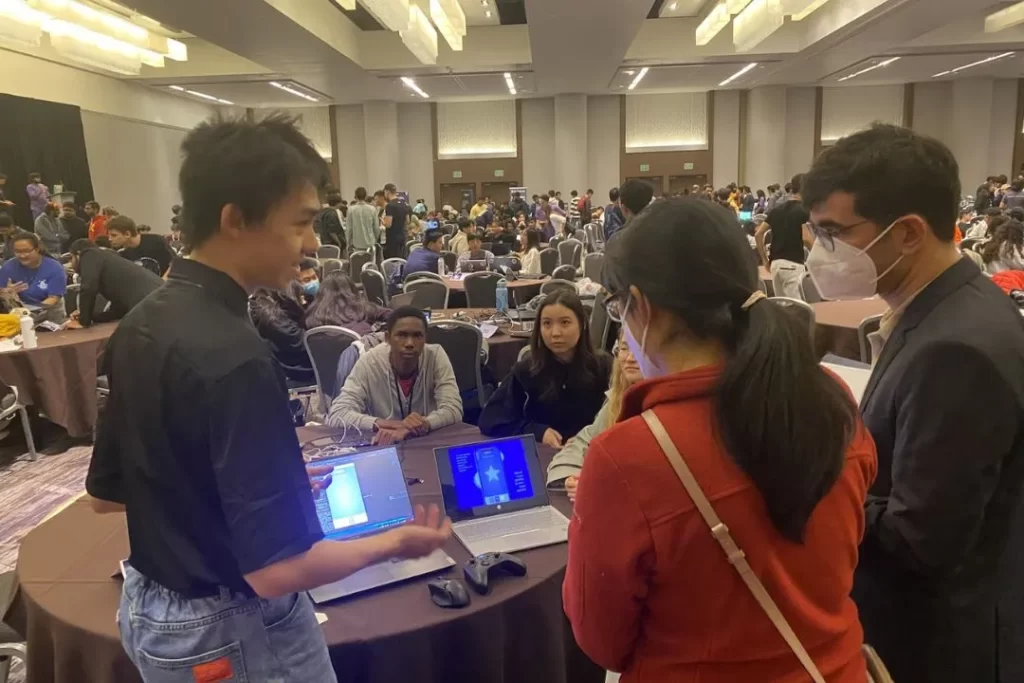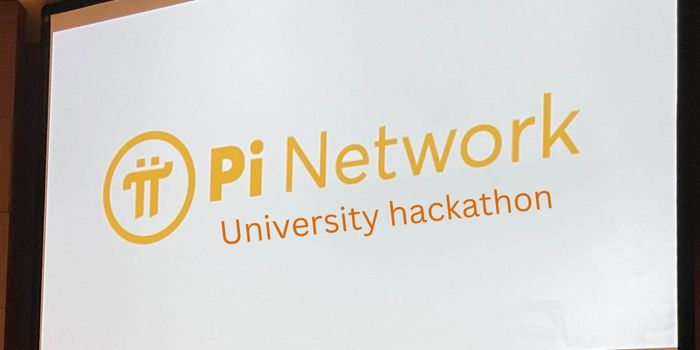Pi Network happily organized their three U.S.-based University hackathons on the weekend of October 14–16 at Harvard University, Cornell University, and UC Berkeley as part of an outreach program to onboard new developers. On Pi’s platform, there, creative student developers from all around the nation and the world worked on original projects and integrated Pi Cryptocurrency into their applications.
Following up on the previous blog post on the University hackathon, Pi Network revealed their winning teams and their Pi app creations. The top students who participated in HackHarvard, BigRed/Hacks, and CalHacks had the chance to use Pi’s technology and receive one-on-one instruction from the Pi Core Team.
These young programmers showcased the innovative prototypes that can be produced in only a single weekend by utilizing the developer tools and user-friendly platform of the Pi Network. These several projects hint at the possibility of many additional Pi Network-based products and use cases that could gain from blockchain integration. Expanding the range of Web3 apps and the possibilities for blockchain-based services to benefit common people throughout the world is one of Pi’s goals.
Pi Network had presented the winners from each of the three University hackathon hackathons that they have attended. The teams were distinguished for their original ideas and unique uses of Pi in their apps, even though these projects were only built over the period of one weekend and are currently just demos.
The Pi Network team were delighted that a significant number of these University hackathon participants, including several of the teams listed below, have expressed an interest in and an ambition to continue developing their Pi apps. In order to help these budding developers, become fully-fledged Pi apps, the Core Team continues to provide technical and creative guidance.
Pi Network’s University hackathon winners from three different universities
Pi Network chose one excellent winning team at each University hackathon, and they are thrilled to share their projects with all the Pioneers all around the world.
Harvard University hackathon winner/ HackHarvard: Sus Drones
Sus Drones
The winning Harvard team concentrated their efforts on developing a drone system that promotes sustainability. The Sus Drones project, headed by Akshay Kumar, Garv Jasuja, Vijay Bhaskar Chiluveru, & Muntaser Syed, involves a sensor-equipped drone that can precisely measure the CO2, CH4, and albedo of the soil. So that it can accurately map environmental parameters.

Using this data and method, Sus Drones can measure the carbon emission of a farm land or any other land and can utilize it to sell the related carbon credits on Pi Network. Farmers, businesses, and individuals will be able to view the precise amount of carbon emissions on their property and buy or trade carbon credits via the Pi Network platform and the Pi coin.
When the team was asked about why they choose Pi Network to build their Sus Drones program over other networks. Vijay Bhaskar Chiluveru, one of the team members, said that Pi is an attractive partner because of its prominent size and position in Web3. Akshay Kumar, the other team member, further said that the team intended to capitalize on the clear audience and users that are already there & the ease of use was important because they didn’t know much about blockchain technology.
In response, with their user-friendly coding environment, Pi Network is pleased to simplify complicated projects. Innovation shouldn’t be hindered by blockchain, and they’re eager to see Sus Drones’ initiative advance.
Cornell University hackathon winner/ BigRed/Hacks: NFTree
NFTree
The winning Cornell team, NFTree, which was made up of Atiksh Bhardwaj, Collin Li, Owen Oertell, and iga Kovai, developed another concept that was concerned with sustainability.

A Pi Network-based NTF project called NFTree aims to finance and promote tree planting all around the world. The principle behind NFTree is that each NFTree accounts for a genuine, distinct tree, & users can trade these tokens using Pi.
The unique method used by NFTree to provide consumers with an estimate of the real tree’s health and value takes into account the type of tree, location, age, and environmental and climatic factors.
Since their project was centered on sustainability and Pi’s platform is environmentally friendly, team member Owen Oertell explained, they decided to create on a platform that shared their values. Pi Network & NFTree had some obvious connections to begin with.
Pi Network said that they’re interested to see how far this initiative may go in giving communities and individuals the ability to take actual action virtually.
UC Berkeley University hackathon winner/ CalHacks: Sparkle
Sparkle
At UC Berkeley, Sparkle stood out as a fun gaming app with an in-game NFT component that easily connects with Pi cryptocurrency amid a crowded field of roughly 2,000 hackers. With a straightforward core product that may grow over time, Sparkle team members Aidana Mustafina, Arububim Roman, Merxon Yuan, and Godson Ajodo found a method to engage and amuse our user base of 35M+ active users.

Users of Sparkle engage in a passive game with the objective of increasing their “Sparkle” and progressing to new levels when they accomplish certain goals. After that, players can use Pi money to buy in-game NFTs, each of which can enhance their gameplay with new perks or abilities. Players can later sell these essential NFT power ups for Pi to other players by placing Sparkle on the Pi ecosystem.
We learned more about Team Sparkle’s approach to building on the Pi from Godson Ajodo. He said that at first, they believed building NFTs and a Pi App would be too challenging. But by the end of the University hackathon, they were ready to release a fully functional prototype, and they were astounded by how quickly they managed to do it.
Summary of Pi Network’s University hackathon which highlights Pi cryptocurrency’s utility & Ease of use
According to the Pi Network, they have a platform that is really easy to use, both for their users and for developers who want to use it to create new applications. The creators of Sparkle, Sus Drones, & NFTree benefited from the Pi platform’s open-source technology. Designing a Pi app only requires three easy steps: building a web application, adding the Pi JavaScript library, and making API calls.
These hackers produced the initial versions of some amazing projects within the course of one weekend, providing a successful case study from which they hope other developers will take inspiration.
Along with these victors, other noteworthy University hackathon projects that successfully incorporated Pi’s technology also deserve recognition. These include Pi Bakery, a marketplace, Instafit, a health and fitness app, and Craft Pi (an ed-tech app).
Hackers demonstrated the variety of use cases for the Pi community as well as the advantages of developing apps on the Pi Network by producing so many pertinent and interesting projects during the weekend.
Building on the Pi platform is straightforward and simple, and it’s a terrific way to have quick access to an active user community of more than 35 million members, as these University hackathons have demonstrated. Pi Network enables developers to create world-class apps and services for its millions of verified users by utilizing straightforward user authentication and payment connections, cheap transaction fees, an environmentally friendly protocol, and a smooth user experience.
The best aspect is that Pi Network development doesn’t require knowledge of specific programming or experience with blockchains due to its user-friendly and versatile platform.
Pioneers, register as a Pi app developer at the Pi Developer Portal and start writing code in your preferred Javascript-compatible language if you want to get in on the action and create an app for the Pi. If you are passionate about contributing to the Pi ecosystem but lack programming skills, team up with or recommend the Pi platform to your developer friends to create utility-based Pi apps. (Take note that the Pi Browser, which houses the Pi mobile ecosystem, is the only platform from which you may access this URL. For additional information about how to build, visit the Pi Developer’s GitHub page here.)
- Also read about: Pi Network’s core team sponsored and hosted university hackathons
- Also read about: Pi Network’s pilot KYC solution released
- Also read about: Pi Blockexplorer
- Also read about: Introduction of Pi App Engine #BuildPi2gether








I would like to suggest metaverse in coordination with pi network to be used as currency.
It would be good as a startup